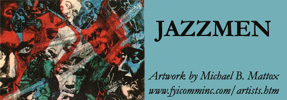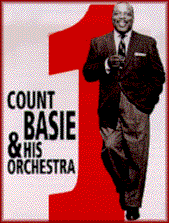|
BUDD JOHNSON |
|
||
|
|
Budd Johnson was a talented and valuable jazz musician for many decades, a behind-the-scenes player and writer who uplifted a countless number of sessions from the 1930s into the '80s. Johnson started off playing in Kansas City in the late '20s, including with the bands of Terrence Holder, Jesse Stone, and George E. Lee. He made his recording debut while with Louis Armstrong's big band (1932-1933), and gained attention for his work as tenor soloist and arranger during three stints with the Earl Hines Orchestra (1932-1942). One of the first tenor saxophonists to be influenced by Lester Young (although by the 1940s, he had a distinctive tone of his own), Johnson had brief stints with Gus Arnheim (1937) and the bands of Fletcher and Horace Henderson (1938) between his periods with Hines. He contributed arrangements to several big bands, including those of Woody Herman, Buddy Rich, Boyd Raeburn, and Billy Eckstine, and was partly responsible for Hines hiring young modernists during 1942-1943. He recorded with Coleman Hawkins on the first bebop session (1944), worked with Dizzy Gillespie and Sy Oliver (1947), and in the 1950s led his own groups, in addition to touring with Snub Mosley (1952) and Benny Goodman (1957).Johnson was with the big bands of Quincy Jones (1960) and Count Basie (1961-1962) before renewing ties with Earl Hines, who he played with on and off again starting in 1964. He formed the JPJ Quartet, which worked on an occasional basis, during 1969-1975; held his own at the 1971 Newport in New York jam sessions; became a jazz educator; and recorded an excellent album with Phil Woods eight months before his death. Budd Johnson led some obscure sessions during 1947-1956, in addition to notable albums for Felsted (1958), Riverside, Swingville, Argo, Black & Blue, Master Jazz, Dragon, and Uptown. [Source] |
|
|




